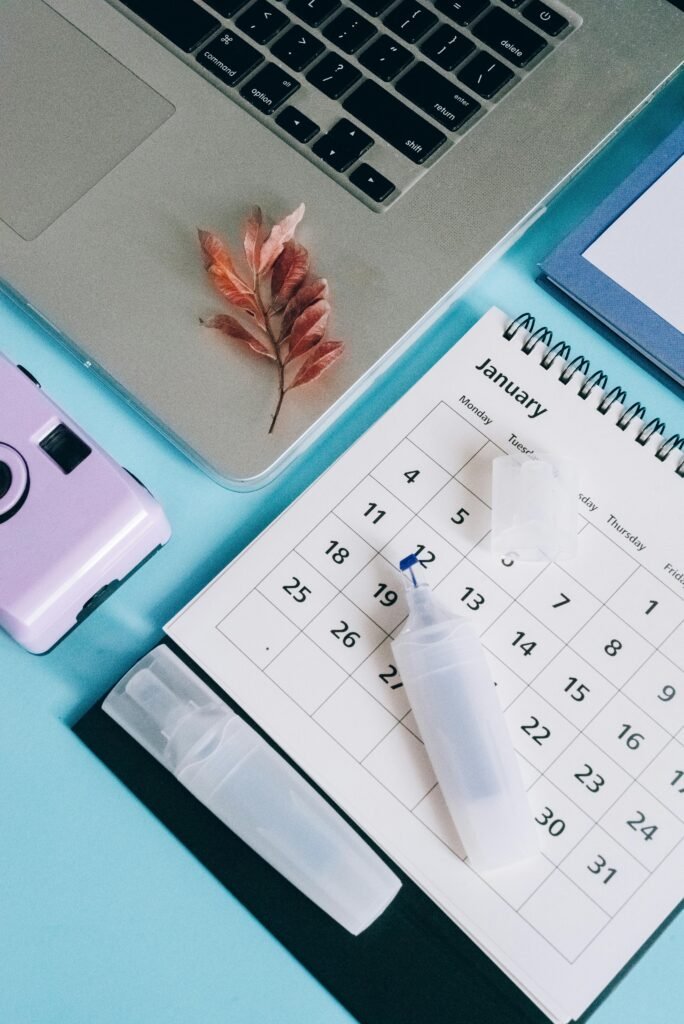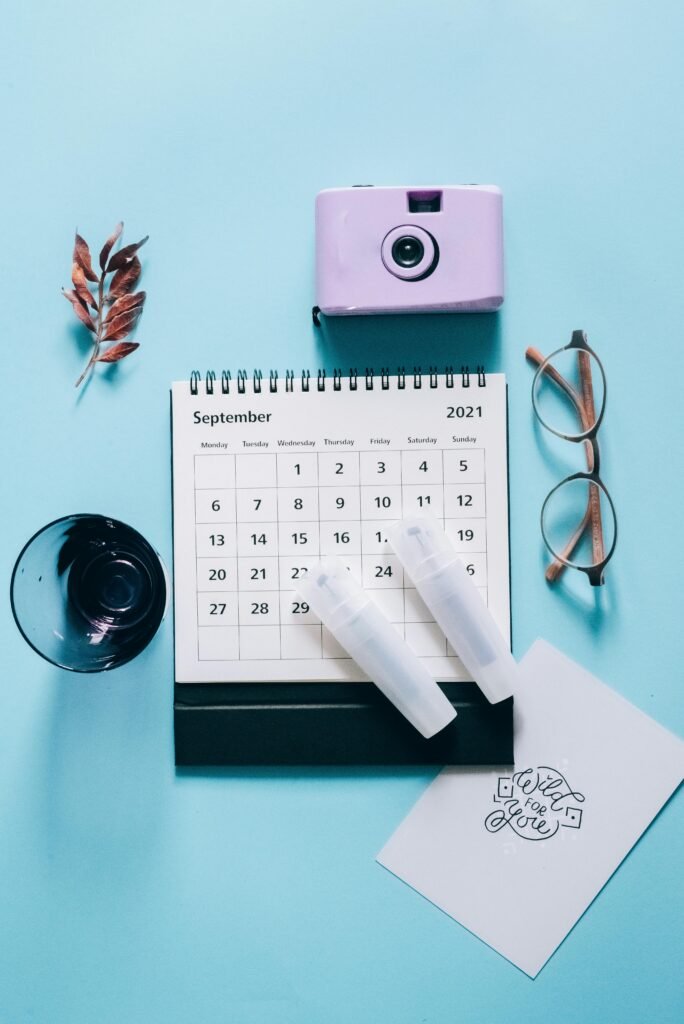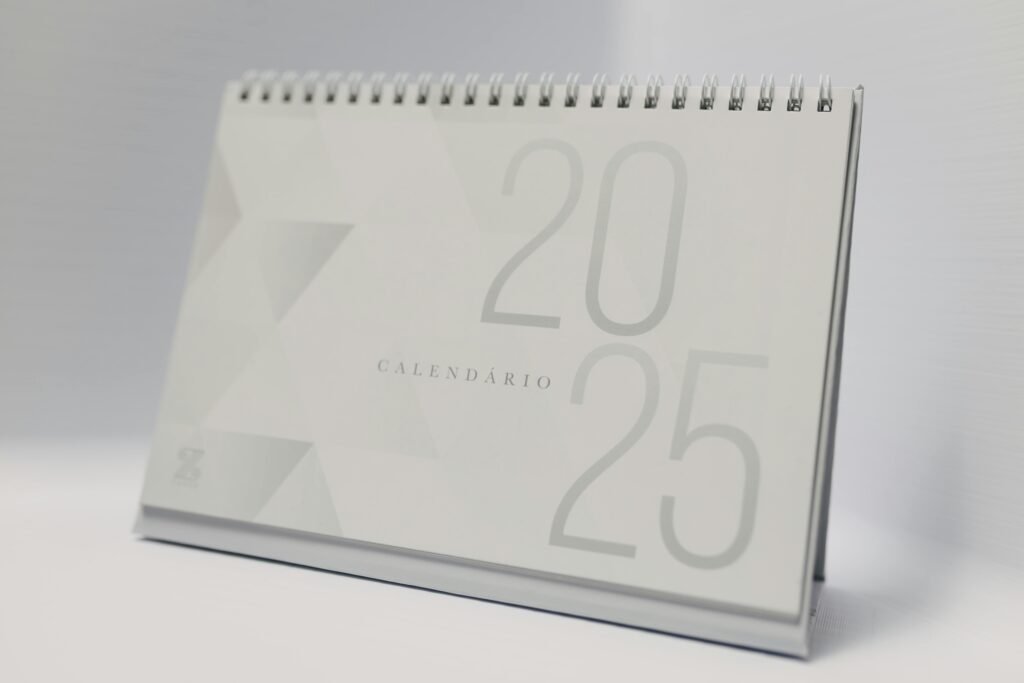

A calendar helps us organize and keep track of days, months, and years. Understanding calendar-related vocabulary is essential for discussing schedules, planning events, and navigating daily life in English. Below is a comprehensive guide to calendar vocabulary.
📅 Basic Calendar Terms
- Calendar – A chart or system showing days, weeks, and months of a year.
- Date – A specific day of the month and year. (Example: Today’s date is December 19, 2024.)
- Day – A 24-hour period. (Example: Monday, Tuesday, etc.)
- Week – A seven-day period. (Example: A week starts on Sunday and ends on Saturday.)
- Month – One of the 12 divisions of a year. (Example: January, February, etc.)
- Year – A period of 12 months or 365 days (366 days in a leap year).
📆 Days of the Week
- Sunday
- Monday
- Tuesday
- Wednesday
- Thursday
- Friday
- Saturday
📅 Months of the Year
- January
- February
- March
- April
- May
- June
- July
- August
- September
- October
- November
- December
🗓️ Parts of the Calendar
- Weekday – Any day from Monday to Friday. (Example: Tuesday is a weekday.)
- Weekend – The days at the end of the week (Saturday and Sunday).
- Workday – A day typically spent working (Monday to Friday for many people).
- Public Holiday – A day when most people don’t work due to national celebrations. (Example: New Year’s Day, Christmas Day.)
- Leap Year – A year with 366 days, adding February 29 as the extra day. (Example: 2024 is a leap year.)
📖 Periods and Seasons
- Morning – The early part of the day (6:00 AM – 12:00 PM).
- Afternoon – The time between noon and evening (12:00 PM – 6:00 PM).
- Evening – The later part of the day (6:00 PM – 9:00 PM).
- Night – The time from dusk to dawn (9:00 PM – 6:00 AM).
- Season – One of the four divisions of the year based on weather:
- Spring – March, April, May.
- Summer – June, July, August.
- Autumn (Fall) – September, October, November.
- Winter – December, January, February.
🕰️ Important Calendar Vocabulary
- Yesterday – The day before today. (Example: Yesterday was Monday.)
- Today – The current day. (Example: Today is Tuesday.)
- Tomorrow – The day after today. (Example: Tomorrow will be Wednesday.)
- Weekday – Monday through Friday. (Example: Wednesday is a weekday.)
- Weekend – Saturday and Sunday. (Example: We relax on the weekend.)
- Deadline – The last date to complete a task. (Example: The deadline for the project is December 22.)
- Schedule – A plan of activities for specific dates and times.
- Appointment – A scheduled meeting or event. (Example: Doctor’s appointment on January 5.)
📆 Using the Calendar
How to Ask About Dates:
- What is today’s date?
Answer: Today is December 19, 2024. - What day is it today?
Answer: It’s Thursday.
Common Phrases About Time:
- The first day of the month – The beginning of the month.
- The last day of the month – The end of the month.
- Mid-month – Around the middle of the month.
- Quarter of the year – Three months grouped together. (Example: Q1: January to March)
- Bi-weekly – Every two weeks.
- Monthly – Once a month.
- Annually – Once a year.
🗣️ Vocabulary in Practice
Example Sentences:
- Today is Monday, December 19, 2024.
- My birthday is in the spring season.
- The meeting is scheduled for the third week of March.
- We celebrate New Year’s Day on the 1st of January.
- Next week, we have a school holiday.
💬 Practice Questions:
- What are the four seasons? (Answer: Spring, Summer, Autumn, Winter)
- How many days are there in February in a leap year? (Answer: 29 days)
- What day comes after Saturday? (Answer: Sunday)
📌 Visit www.commandsglobal.com for more vocabulary tips and lessons to improve your English skills!
Understanding calendar vocabulary will help you plan better and communicate effectively about dates and events. 📅✨


Good day! I would appreciate your guidance. Could you please contact me via phone or WhatsApp? Text me on Whatsapp